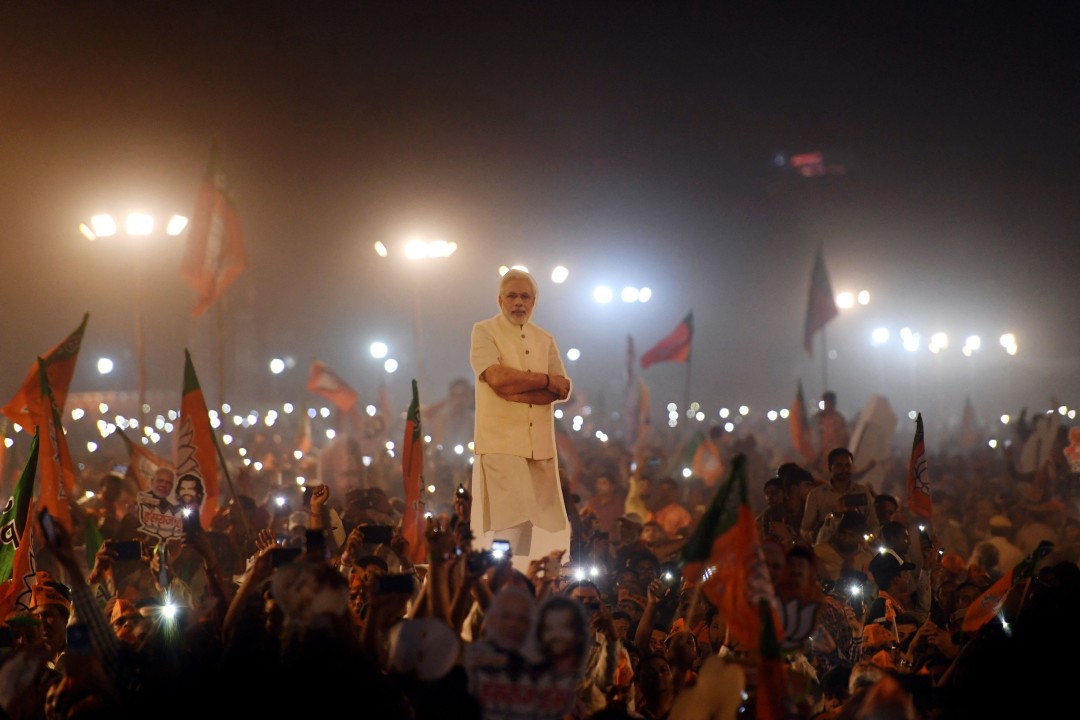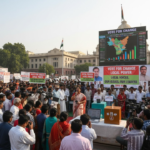
The Promise of Tomorrow: How India’s Democracy Shapes the Future
Empowering Youth to Build a Stronger, More Inclusive India
Key Metrics:
- Youth Demographics: Nearly 65% of India’s population is under the age of 35, making it one of the youngest countries in the world.
- Youth in Parliament: Only 13% of Members of Parliament (MPs) in the 17th Lok Sabha are under 40, highlighting a gap in political representation.
- Education Initiatives: Over 3 crore students benefit annually from scholarships and skill development programs like PM Kaushal Vikas Yojana and National Scholarship Portal.
- Startup Leadership: Young entrepreneurs account for over 50% of the founders in India’s 100,000+ startup ecosystem, driving economic innovation.
News Body
India’s democracy, vibrant and evolving, places its greatest hope in its youth. With a majority of the population under 35, the nation’s democratic framework is uniquely positioned to harness the potential of its young citizens to shape the future. From education and entrepreneurship to civic leadership, young Indians are poised to take center stage in defining the nation’s path forward.
The Youth as the Pulse of Democracy
India’s youth are more than just a demographic dividend—they are the heartbeat of its democracy. Their participation in elections, debates, and movements reflects a deep commitment to shaping governance and public policy. In the 2019 general elections, first-time voters played a significant role, bringing fresh perspectives and priorities to the political arena.
Despite this enthusiasm, the gap between youth aspirations and their formal representation in governance is stark. While young Indians actively engage in social and political discourse, only 13% of MPs in the 17th Lok Sabha are under 40. Addressing this gap requires systemic reforms, mentorship programs, and platforms that encourage young leaders to step into formal politics.
Education and Skill Development: Building the Foundation
India’s democracy invests heavily in education and skill development to empower its youth. Initiatives like PM Kaushal Vikas Yojana provide vocational training to millions of young Indians, equipping them with the skills needed for modern industries.
The National Education Policy (NEP) 2020 emphasizes critical thinking, flexibility, and inclusivity in education, preparing students for a dynamic and interconnected world. Scholarships and digital learning programs bridge socio-economic gaps, ensuring that no young mind is left behind in the quest for knowledge and opportunity.
Entrepreneurship: The Young as Nation Builders
Young entrepreneurs are the driving force behind India’s booming startup ecosystem, which ranks among the top three globally. Over 50% of the founders in this ecosystem are under 35, leading innovations in sectors like fintech, edtech, and healthtech.
Government initiatives like Startup India and Digital India have created an enabling environment for young entrepreneurs, fostering creativity and economic growth. By addressing real-world problems, these young innovators not only drive progress but also embody the democratic ideal of citizen-led development.
Youth Movements: Agents of Change
India’s youth have historically been at the forefront of social and political change. From independence movements to recent environmental campaigns, their voices have catalyzed significant transformations. Movements like Fridays for Future and grassroots campaigns for digital literacy showcase the youth’s commitment to sustainable and inclusive progress.
Platforms such as Youth Parliaments and student-led organizations provide opportunities for young Indians to engage in policy-making and civic dialogue, ensuring that their ideas influence the nation’s democratic processes.
Challenges and the Road Ahead
While India’s youth hold immense promise, challenges such as unemployment, limited access to quality education in rural areas, and underrepresentation in governance persist. Strengthening policies to address these issues and creating mentorship opportunities for aspiring young leaders are critical.
The inclusion of youth in formal governance structures, coupled with their active engagement in grassroots initiatives, will ensure that India’s democracy remains dynamic and forward-looking.
Conclusion
India’s democracy thrives on the promise of its young citizens. By investing in education, fostering entrepreneurship, and creating platforms for political participation, the nation empowers its youth to lead the way toward a more inclusive and sustainable future.
As young Indians step into their roles as innovators, leaders, and change-makers, they embody the promise of tomorrow. In nurturing these young buds, India’s democracy shapes not just its own future but sets an example for the world of how youth-driven progress can transform a nation.



